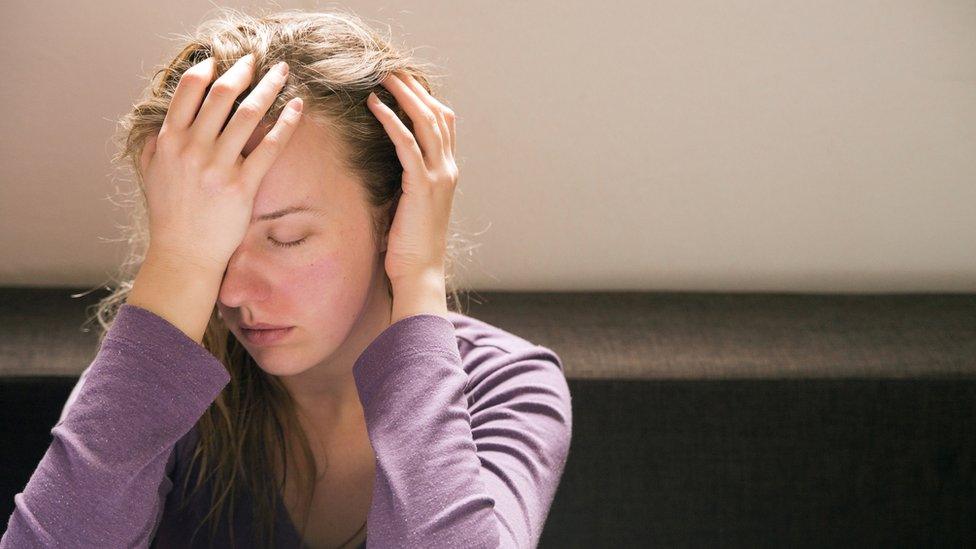Call for new law to tackle misogyny in Scotland
- Published

The expert group said women do not currently get enough protection from violence and abuse
A new law aimed at tackling misogyny should be created in Scotland, according to a report by a group of experts, external.
The report said the new law should treat violence and abuse targeted at women as an aggravating factor.
It also called for a new offence of stirring up hatred against women and girls to be created.
And it said there should be specific crime of threatening to commit sexual assault or rape.
But the report said changing the law would not be enough by itself to tackle the "insidious" problem of misogyny in Scotland.
The expert group chaired by Baroness Helena Kennedy QC had been asked by the government to examine whether there were still gaps in the law following the introduction of the Hate Crime Act last year.
Under the act, offences are considered "aggravated" - which could see a tougher sentence being imposed - if they involve prejudice on the basis of age, disability, race, religion, sexual orientation, transgender identity or variations in sex characteristics (sometimes described as "intersex" physical or biological characteristics).
There had been calls for the act to also include misogyny - crimes committed because of prejudice or hatred towards women.
In its report - which was published in International Women's day - the expert group said it did not believe the Hate Crime Act should be widened to include misogyny because women are not a minority group.
It instead called for a separate Misogyny and Criminal Justice Act to be created, which would make misogyny an aggravation as well as creating three new offences:
Stirring up hatred against women and girls
Public misogynistic harassment
Issuing threats of, or invoking, rape or sexual assault or disfigurement of women and girls either online or offline
The report stressed that not all crimes where women were the victim would be treated as aggravated, because there would need to be evidence of misogyny.
Baroness Kennedy said there had been a "rising tide of anger" over the inability of the justice system to address the "violence, abuse and degradation that is so much part of women's and girls' daily lives".
She said this debate had now moved to centre stage due to the "climate of increasing polarisation and divisiveness where vicious conduct seems to have exploded, turbo-charged by online disinhibition and social media invasiveness".
Despite highlighting several positive changes to how the justice system deals with rape, sexual abuse and domestic violence in recent years, she said women still do not get the justice they require and deserve.

The proposed law would also look to tackle online abuse and threats towards women
Baroness Kennedy added: "The daily grind of sexual harassment and abuse degrades women's lives, yet it seems to be accepted as part of what it means to be a woman.
"The failure to understand the ramifications of what is seen as low-level harassment and abuse is just one of the ways in which the criminal justice system falls down for women".
She also said this "malign conduct" does not happen to men in any comparable way, which was why the new law should be created exclusively for women and those perceived to be women.
The working group said changing the law was essential, but warned it would be "insufficient to address the insidious problem of misogyny in Scotland" by itself.
It therefore made a series of further recommendations to the government, including additional education and training within the criminal justice system and public awareness-raising campaigns.
Justice Secretary Keith Brown said the government would now consider the report's recommendations.
He added: "We are absolutely clear that women and girls should not experience any form of harassment, abuse or violence which is why we set up this independent Working Group and it is fitting its findings were published on International Women's Day."
MPs last month rejected attempts to make misogyny a hate crime in England by 314 votes to 190.